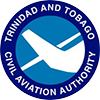Can I travel with this?
Can I pack this?
↓
If in doubt, ask!
Check to see whether there is a Dangerous Goods symbol

If there is, you should:
· Check the cover of your ticket to see if what you are planning to carry is on the list of forbidden or restricted dangerous goods.
· Check the website of the airline you are flying with.
· Contact the airline you are flying with. Their trained staff can help with your enquiry, and can tell you what can or
cannot be carried.
Some items are FORBIDDEN FROM TRANSPORTATION BY AIR

Incidents can occur if the necessary precautions are not taken. Detailed below are some Dangerous Goods incidents which occurred:
Incident No. 1
A freight forwarding company collected on behalf of a client, bags to be shipped by air to a branch of the client. The contents of the bag was declared as ‘company mail’. During flight, paint was noticed to be flowing from the cargo compartment of the aircraft. It was discovered that it also contained cans of paint. As a result, major inconvenience was caused. Passengers’ bags were contaminated with paint, as well as the aircraft underwent extended ground time to have clean-up of the spillage. (Paint is classified as corrosive).
Incident No. 2
While unloading baggage, porters noticed smoke emitting from a suitcase. On investigating, it was discovered that a quantity of book matches had caught afire. Book matches have a history of igniting when subject to vibrations experienced by suitcases stacked in an aircraft cargo compartment.
Incident No. 3
A courier driver arrived at a freight forwarder’s premises to pick up a large crate which contained black powder (an explosive). The crate had traveled from another destination by air and was not consigned or carried by the airline as Dangerous Goods. The freight forwarder became suspicious and notified the Civil Aviation Authority. Further investigation revealed that the owner of the crate had deliberately consigned it as non-dangerous then traveled the same route on a different aircraft. The person was arrested and prosecuted. The person received a two year sentence. The sentencing judge said that it was clear that the person knew he was committing a crime and knowingly and recklessly placed the
lives of passengers in great danger.
Incident No. 4
Police were alerted to a baggage carousel at an International Airport regarding an unclaimed bag. An inspection of the contents revealed a fire extinguisher (Dangerous Goods), a blue pullover and a packet of sandwiches. A report was submitted to the Civil Aviation Authority who traced the baggage ticket to a resident, just arrived from overseas, who denied any knowledge of the bag. Enquiries were made back through the airport where the bag was first checked in. The baggage was traced to a taxi driver who regularly drops passengers at the airport. It was finally discovered that the passenger had inadvertently taken the taxi driver’s bag from the trunk and had not noticed that he checked in an additional bag. Due to lack of vigilance, this occurred.
Incident No. 5
A passenger returned from vacation with several flares and explosive primers in his checked baggage. The person was also carrying some plant material which the Quarantine officers picked up. They noticed that the person was nervous and directed the person to the customs line for a full check. During that check, the explosives were detected. The person was prosecuted and fined heavily.
Safety is everyone’s responsibility and failing to declare Dangerous Goods can result in fines or imprisonment.
PERSONS OR ENTITIES WHO ARE FOUND GUILTY OF VIOLATIONS WOULD BE PROSECUTED ACCORDING TO THE LAW…
Sections 63 and 64 of the Civil Aviation Act of the Republic of Trinidad and Tobago states:
The Authority shall monitor and enforce compliance with the provisions of Annex 18 of the Chicago Convention and the ICAO Technical Instructions for the Safe Transport of Dangerous Goods by Air, and is authorised to submit variations to the Technical Air Instructions on behalf of Trinidad and Tobago where necessary.
Any person who offers or accepts dangerous goods for commercial air transport in violation of Annex 18 to the Chicago Convention or the ICAO Technical Instructions for the Safe Transport of Dangerous Goods by Air, or violates any duty imposed thereunder, commits an offence and shall be liable to a penalty of five hundred thousand dollars for each part of the Technical Instructions that are violated.
Some things were never meant to fly
